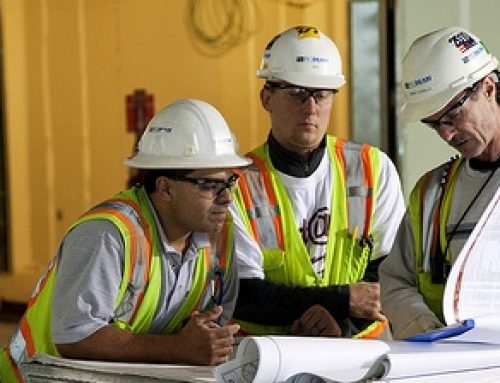Coronavirus is creating many challenges for all contractors, contingency planning should be very high on the list of actions, but so should communication and negotiation too. As business feels the pressures of Coronavirus the need to renegotiate on existing agreements may also be required. So, what is Force Majeure and how can it help a contractor?
Communication is needed quite quickly if you are to resolve the many issues that can occur over Force Majeure, to agree revised volumes, deadlines or service schedules means that, if anything, the volume of negotiations will increase.
What is Force Majeure?
Force majeure refers to a clause that is included in contracts to remove liability for natural and unavoidable catastrophes that interrupt the expected course of events and restrict participants from fulfilling contract obligations. Typically these can be financial liabilities, but they need not be.
In the commercial sector, we are sometimes asked what is Force Majeure and how can it help a contractor with contract delivery? With the impact of COVID-19 on the delivery of service contracts, supply chains, production and transport disruptions have been significant in some sectors.
The concept of force majeure (FM) derives from French civil law and has been carried across to several other civil law jurisdictions. It’s also of wide application in common law jurisdictions and is frequently used in commercial contracts governed by such common law systems because of the limited remedies otherwise available to the parties when the contract becomes impossible, difficult or onerous to deliver due to events outside the affected party’s control.
If you’re not sure if you have an FM clause you would do well to seek some professional help to find out.
Can you Negotiate, if so how?
The quick answer is yes you can negotiate, even if you don’t have an FM clause, it would be a tardy client who would not recognise these are significant times for contractors and deny an opportunity to talk and negotiate on terms and arrangements on the delivery of goods and services.
How we negotiate practically is a different matter. One of the first things to think about is the practicalities. It’s likely that within the coming weeks we will see some restrictions on travel and therefore meetings, but with practical measures being implemented you can still review the contract and carry out a much needed renegotiation.
Obviously, in a digital and therefore virtual world, it’s possible to distance yourself but still conduct a very worthwhile meeting. This could be via Skype, Zoom or some other video conference App. Email and Telephone also put you in contact with others without the exposure of a face to face meeting.
If we need more evidence, just consider the announcement that the UK and EU negotiators have agreed not to hold face-to-face talks on Brexit because of virus concerns. Virtual meetings are not always easy, it takes a different measure of intuitive reaction as we don’t see the body language when we ask that awkward questions, but it can be done.
FM is being used now, more than 50 IT and payroll staff began working from home on Monday as ‘Galliford Try’ has told its critical back-office staff in IT and payroll to work from home in an attempt to avoid catching Coronavirus. Contingency management happens in many varied ways. For further information check out the UK Government information.
We have further information on COVID related issues here
The CEO commented that “Coronavirus is a force majeure event. I’m sure we’ll have robust discussions [with clients] but if a client says no, we are going to have to make a decision. The thing is to remain calm and treat each other fairly.”






